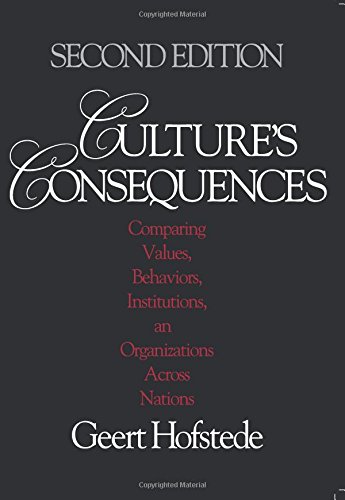Culture's Consequences
Geert Hofstede received a master’s degree in Mechanical Engineering from the Technical University at Delft and a doctorate in Social Psychology from the University of Groningen, both in his native Netherlands. His professional career includes experience as a worker, foreman, plant manager, chief psychologist on the international staff of a multinational corporation, academic researcher, director of human resources of another multinational, and university professor. He has been affiliated with IMD (Lausanne, Switzerland), INSEAD (Fontainebleau, France), the European Institute for Advanced Studies in Management (Brussels, Belguim), IIASA (Laxenburg Castle, Austria), and the University of Hong Kong. He is Professor Emeritus of Organizational Anthropology and International Management of Maastricht University, the Netherlands. He is currently a Senior Fellow of the Institute for Research on Intercultural Cooperation (of which he was a founder) and of the Center for Economic Research, both at Tilburg University, the Netherlands. He has lectured at universities and consulted for institutions and companies around the world. Dr. Hofstede’s books have appeared in seventeen languages, and his articles have been published in social science journals around the world. He is among the top 100 most cited authors in the Social Science Citation Index. ... Read more Read less
The publication of this Second Edition of Culture's Consequences marks an important moment in the field of cross-cultural studies… for business researchers interested in doing cross-cultural work. A teaching aid for introducing the notion of cultural differences to business students, [it] provides an easy-to-understand framework with numerous examples of their practical applicability. Hofstede's framework for understanding national differences has been one of the most influential and widely used frameworks in cross-cultural business studies, in the past ten years' - Australian Journal of Management The long-anticipated Second Edition of a true classic is thoroughly updated with an expanded coverage and scope. This excellent work explores the differences in thinking and social action that exist between members of more than 50 modern nations and will be the new benchmark for scholars and professionals for years to come. It argues that people carry mental programmes' which are developed in the family in early childhood and reinforced in school and organizations, and that these mental programmes contain a component of national culture. They are most clearly expressed in the different values that predominate among people from different countries. ... Read more Read less











